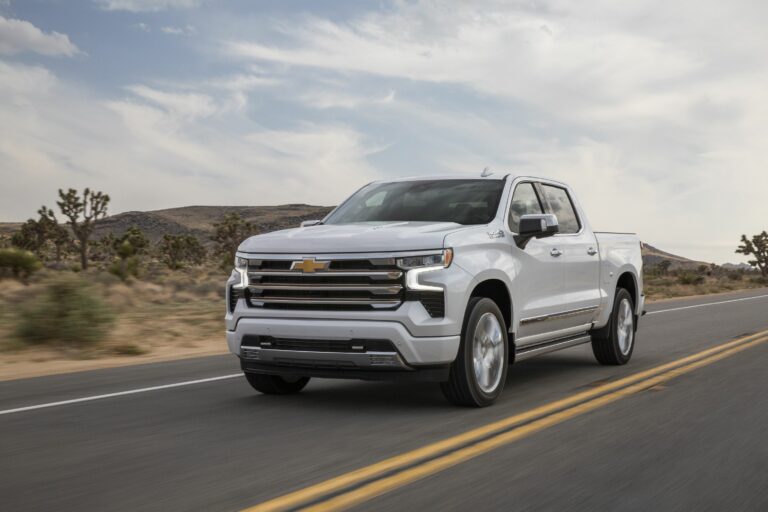Used Chevy Or GMC Trucks For Sale: Your Comprehensive Guide to Smart Buying
Used Chevy Or GMC Trucks For Sale: Your Comprehensive Guide to Smart Buying cars.truckstrend.com
In the vast landscape of pre-owned vehicles, few categories hold as much appeal and practical utility as used pickup trucks. Among these, Used Chevy or GMC Trucks for Sale stand out as perennial favorites, offering a compelling blend of robust performance, enduring reliability, and significant value. Whether you’re a contractor needing a dependable workhorse, an outdoor enthusiast seeking adventure, or a family looking for a versatile daily driver with towing capability, a pre-owned Chevrolet Silverado, Colorado, GMC Sierra, or Canyon can be an exceptionally smart investment.
This comprehensive guide is designed to demystify the process of finding, evaluating, and purchasing a used Chevy or GMC truck. We’ll delve into everything from understanding the nuances between the brands to navigating the buying process, ensuring you’re equipped with the knowledge to make an informed decision and drive away with the perfect truck for your needs.
Used Chevy Or GMC Trucks For Sale: Your Comprehensive Guide to Smart Buying
Why Choose a Used Chevy or GMC Truck?
Opting for a used Chevy or GMC truck over a new one offers a multitude of benefits that resonate with savvy buyers:
- Cost-Effectiveness: The most obvious advantage is the lower purchase price. New vehicles experience significant depreciation the moment they leave the dealership lot. By choosing a used model, you let the first owner absorb the steepest part of this depreciation curve, allowing you to acquire a highly capable vehicle for a fraction of its original cost.
- Proven Reliability and Durability: Chevrolet and GMC trucks are renowned for their robust build quality and long-term durability. These vehicles are engineered to handle demanding tasks and often rack up hundreds of thousands of miles with proper maintenance. Buying used means you’re investing in a design that has already proven its mettle on the road.
- Wider Selection within Budget: A used budget often opens up access to higher trim levels or more powerful engine options that might be out of reach when buying new. You can often find a well-equipped, slightly older model that offers more features and capabilities than a base model new truck for the same price.
- Lower Insurance Costs: Generally, insurance premiums for used vehicles are lower than those for new ones, adding to your overall savings.
- Reduced Registration Fees: In many states, vehicle registration fees are tied to the vehicle’s value, meaning a used truck will typically incur lower annual costs.

For those considering Used Chevy or GMC Trucks for Sale, these benefits translate into tangible savings and greater value, making the pre-owned market an attractive proposition.
Understanding the Lineup: Chevy vs. GMC
While often sharing platforms and powertrains, Chevrolet and GMC trucks cater to slightly different audiences, though their core capabilities remain similar.
- Chevrolet (Silverado, Colorado): Generally perceived as the more mainstream, work-oriented brand. Chevrolet trucks, like the full-size Silverado 1500, 2500HD, and 3500HD, and the mid-size Colorado, are known for their rugged practicality, diverse trim levels (from basic Work Truck to luxurious High Country), and strong performance. They often appeal to a broader range of buyers seeking a reliable and capable truck without excessive frills.
- GMC (Sierra, Canyon): GMC, standing for General Motors Truck Company, positions itself as the more "professional grade" or upscale counterpart. While mechanically similar to their Chevy brethren (Sierra to Silverado, Canyon to Colorado), GMC trucks often feature more refined exterior styling, a more premium interior finish, and higher-end standard features, especially in their Denali trim. They target buyers who appreciate a more sophisticated aesthetic and a slightly more luxurious feel in their truck.
Key Differences to Note:
- Styling: GMC trucks typically have a more squared-off, chrome-heavy, and refined appearance, while Chevy trucks tend to have a bolder, more aggressive, or utilitarian look depending on the trim.
- Trim Levels: Both offer a wide range, but GMC’s Denali trim is often considered the pinnacle of luxury in the full-size truck segment, offering unique features and premium materials. Chevrolet’s High Country serves a similar purpose.
- Pricing (Used): While new GMCs often command a slight premium, the difference can narrow in the used market, making a GMC a great value if you find one at a comparable price to a Chevy with similar features.
When searching for Used Chevy or GMC Trucks for Sale, consider which brand’s aesthetic and feature set aligns better with your personal preferences and needs.
Key Factors When Buying Used
A successful used truck purchase hinges on meticulous evaluation. Here’s what to prioritize:
- Budgeting Beyond the Purchase Price: Factor in sales tax, registration fees, insurance, potential repairs, and ongoing maintenance costs. Don’t forget the cost of fuel for these often thirstier vehicles.
- Vehicle History Report (VHR): This is non-negotiable. Services like CarFax and AutoCheck provide invaluable insights into a truck’s past, including:
- Accident History: Was it ever involved in a major collision?
- Service Records: Has it been regularly maintained?
- Ownership History: How many owners has it had?
- Flood/Salvage Titles: Crucial red flags to avoid.
- Odometer Rollback: Verifies mileage accuracy.
- Pre-Purchase Inspection (PPI): Even with a clean VHR, a professional PPI by an independent, trusted mechanic is paramount. They can identify hidden mechanical issues, signs of neglect, or potential problems that aren’t visible to the untrained eye. This small investment can save you thousands down the line.
- Mileage and Age: There’s a sweet spot. Lower mileage often means less wear, but higher mileage doesn’t necessarily mean a bad truck if it’s been well-maintained. Generally, trucks between 3-7 years old with 60,000-120,000 miles offer the best balance of value and remaining lifespan. Avoid excessively high mileage (e.g., over 150,000 miles) unless the price is exceptionally low and the PPI is flawless.
- Overall Condition:
- Exterior: Inspect for rust (especially around wheel wells, rocker panels, and frame), dings, dents, mismatched paint (indicating repair), and tire tread depth.
- Interior: Check for excessive wear on seats, carpets, dashboard cracks, and ensure all electronics (radio, AC, power windows, lights) function correctly.
- Under the Hood: Look for fluid leaks, frayed belts, corrosion on battery terminals, and any signs of amateur repairs. The engine should sound smooth, without unusual noises.
- Underneath: Inspect the frame for bends, cracks, or heavy rust. Check suspension components and exhaust system.
- Trim Levels and Features: Know what you need. Are you looking for a basic work truck (WT/Base), a well-equipped daily driver (LT/SLE), or a luxury hauler (High Country/Denali)? Research the features associated with different trims for the model year you’re considering.
- Engine Options: Both brands offer various gasoline V6 and V8 engines, and often diesel options (Duramax).
- Gas V6: Good for lighter duty, better fuel economy.
- Gas V8: The workhorse for towing and hauling, but thirstier.
- Diesel (Duramax): Excellent for heavy towing, superior fuel economy, but higher upfront cost and potentially more expensive maintenance.
- Drivetrain: Decide between 2WD (rear-wheel drive) or 4WD.
- 2WD: Lighter, slightly better fuel economy, suitable for urban driving and light hauling.
- 4WD: Essential for off-roading, inclement weather, and launching boats. Adds weight and complexity but offers superior traction.
- Towing and Hauling Capacity: Match the truck’s capabilities to your needs. If you plan to tow a large trailer or carry heavy loads, ensure the truck’s Gross Vehicle Weight Rating (GVWR), Gross Combined Weight Rating (GCWR), and payload capacity meet or exceed your requirements.
Where to Find Used Chevy or GMC Trucks
You have several avenues for finding Used Chevy or GMC Trucks for Sale:
- Franchise Dealerships: Offer certified pre-owned (CPO) options with extended warranties, thorough inspections, and financing. Higher prices but more peace of mind.
- Independent Used Car Dealerships: Wider variety, often more competitive pricing than franchise dealers, but due diligence (VHR, PPI) is even more crucial.
- Private Sellers: Often the best deals can be found here, as there’s no dealer markup. Requires more effort on your part for vetting and negotiation.
- Online Marketplaces: Websites like Autotrader, Cars.com, CarGurus, and Facebook Marketplace offer vast inventories from both dealers and private sellers. Filter by make, model, year, and price.
- Auctions: Can yield excellent deals, but typically cater to experienced buyers or dealers. "As-is" sales mean higher risk.
The Buying Process: A Step-by-Step Guide
- Research and Set Priorities: Define your budget, required features (cab style, bed length, engine, 4WD), and desired model years.
- Set a Firm Budget: Include not just the purchase price but also estimated taxes, fees, and initial maintenance.
- Search and Shortlist: Use online platforms to find trucks that match your criteria. Read descriptions carefully and scrutinize photos.
- Contact Sellers and Ask Questions: Before visiting, inquire about the truck’s maintenance history, reasons for selling, any known issues, and if the title is clear.
- Test Drive Thoroughly:
- Drive on various road types (city, highway, bumps).
- Test acceleration, braking (smoothness, pulling), and steering.
- Listen for unusual noises (engine, transmission, suspension).
- Check all lights, signals, wipers, HVAC, and power accessories.
- Engage 4WD if applicable.
- Get a Pre-Purchase Inspection (PPI): If the test drive goes well, arrange for a PPI at a mechanic of your choice.
- Negotiate Price: Armed with the PPI report and market research, negotiate confidently. Be prepared to walk away if the deal isn’t right.
- Finalize Paperwork: Ensure the title is clear, all documents are signed, and you receive a bill of sale. Understand the warranty (if any) and return policies.
Common Issues and What to Watch For
While generally reliable, certain model years or components of Used Chevy or GMC Trucks for Sale can have common issues:
- Rust: Especially prevalent in older models or regions with harsh winters. Check frame, rocker panels, cab corners, and wheel wells thoroughly.
- Transmission Problems: Some older GM transmissions (e.g., 4L60E, 8L90) have known issues like shuddering, hard shifts, or failure. Research specific year/model transmissions.
- Electrical Gremlins: Malfunctioning gauges, power windows, or radio issues can occur.
- Active Fuel Management (AFM)/Dynamic Fuel Management (DFM) Issues: Some V8 engines with these fuel-saving technologies can experience lifter failure, excessive oil consumption, or rough idle.
- Steering and Suspension Components: Worn ball joints, tie rods, or control arm bushings are common wear items, especially on trucks that have seen heavy use or off-roading.
- Brakes: Check for pulsating when braking (warped rotors) or soft pedal feel (air in lines, failing master cylinder).
Always research common problems for the specific model year and engine you are considering. Online forums and owner communities are excellent resources.
Maintenance Tips for Your Used Truck
Once you’ve secured your used Chevy or GMC truck, consistent maintenance is key to its longevity:
- Follow Manufacturer’s Schedule: Adhere to the recommended service intervals for oil changes, tire rotations, fluid checks (transmission, differential, brake fluid), and filter replacements (air, fuel, cabin).
- Regular Inspections: Periodically check tire pressure, fluid levels, belts, hoses, and lights.
- Address Issues Promptly: Don’t ignore warning lights or unusual noises. Early detection can prevent minor issues from becoming costly repairs.
- Rust Prevention: Wash your truck regularly, especially after driving on salted roads. Consider undercoating if you live in a rust-prone area.
Representative Used Chevy/GMC Truck Price Ranges (Estimates)
Please note: Prices for Used Chevy or GMC Trucks for Sale vary significantly based on year, model, trim level, mileage, condition, geographic location, and whether it’s from a dealer or private seller. The table below provides very broad estimates for popular models.
| Model/Series | Age Range (Years Old) | Estimated Price Range (USD) | Key Factors Influencing Price |
|---|---|---|---|
| Chevy Silverado 1500 / GMC Sierra 1500 (Full-Size) | 1-3 Years Old | $35,000 – $65,000+ | Low mileage, higher trims (LTZ, High Country, Denali), advanced features, CPO status. |
| 4-7 Years Old | $25,000 – $45,000 | Mid-range mileage, popular trims (LT, SLE, SLT), good condition. | |
| 8-12+ Years Old | $10,000 – $28,000 | Higher mileage, basic/mid-range trims, condition becomes critical. | |
| Chevy Colorado / GMC Canyon (Mid-Size) | 1-3 Years Old | $28,000 – $45,000+ | Low mileage, ZR2/AT4 trims, diesel option, advanced tech. |
| 4-7 Years Old | $18,000 – $30,000 | Mid-range mileage, popular trims (LT, SLE), good condition. | |
| 8-12+ Years Old | $8,000 – $18,000 | Higher mileage, basic trims, ideal for budget-conscious buyers. | |
| Chevy Silverado 2500HD / GMC Sierra 2500HD (Heavy-Duty) | 1-3 Years Old | $50,000 – $80,000+ | Low mileage, Duramax diesel, high trims (High Country, Denali), special editions. |
| 4-7 Years Old | $35,000 – $60,000 | Mid-range mileage, gas or diesel, popular workhorse trims. | |
| 8-12+ Years Old | $18,000 – $40,000 | Higher mileage, primarily gas engines, condition for heavy use. |
Disclaimer: These are highly generalized estimates. Always research specific models and compare prices from multiple sources (dealerships, private sellers, online listings) in your local market for the most accurate pricing.
Frequently Asked Questions (FAQ) about Used Chevy or GMC Trucks For Sale
Q1: What’s the best model year to buy for a used Chevy or GMC truck?
A1: There’s no single "best" year, as it depends on your budget and desired features. However, trucks from 3-7 years old often represent the best value, having absorbed significant depreciation while still offering modern features and good reliability. Research specific model years for known issues.
Q2: Is a Chevy or GMC truck better for me?
A2: Mechanically, they are very similar. The choice often comes down to styling preference and interior aesthetics. GMC generally offers a more premium feel and appearance, especially in higher trims like Denali, while Chevy offers a broader range from basic work trucks to luxurious models. Test drive both to see which appeals more to you.
Q3: How much should I budget for a pre-purchase inspection (PPI)?
A3: A thorough PPI typically costs between $100-$250, depending on your location and the mechanic. It’s a small investment that can save you thousands by identifying hidden problems.
Q4: Can I get financing for a used truck?
A4: Yes, absolutely. Most banks, credit unions, and dealerships offer financing for used vehicles. Interest rates may be slightly higher than for new vehicles, but competitive rates are available, especially for newer used models.
Q5: What mileage is too high for a used Chevy or GMC truck?
A5: While modern trucks can last well beyond 200,000 miles, generally, trucks with over 150,000 miles require more scrutiny. Focus on maintenance history: a well-maintained truck with 150,000 miles is often a better buy than a neglected one with 80,000 miles.
Q6: Should I buy a Certified Pre-Owned (CPO) Chevy or GMC truck?
A6: CPO vehicles typically undergo a rigorous inspection process and come with an extended manufacturer’s warranty. While they cost more than non-CPO used trucks, they offer added peace of mind, making them a good option for buyers who prioritize security and a dealership-backed guarantee.
Conclusion
Navigating the market for Used Chevy or GMC Trucks for Sale can be a rewarding experience when approached with diligence and knowledge. These trucks represent a cornerstone of American automotive engineering, offering impressive capability, reliability, and value. By understanding the differences between Chevrolet and GMC, meticulously inspecting potential candidates, utilizing vehicle history reports and pre-purchase inspections, and knowing how to negotiate, you can confidently secure a truck that perfectly fits your lifestyle and budget.
Remember, patience and thorough research are your best allies. With the right approach, your next used Chevy or GMC truck won’t just be a vehicle; it will be a dependable partner for work, adventure, and everything in between, delivering years of reliable service and value.




